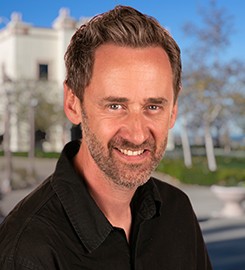The Strategic Decision of Suspending Moral Judgement

begin quote
Professor of Practice Michael Fryer
Adam Curle was one of the first practitioner-academics in the field of peace and conflict studies. In 1974, he became the first professor at the newly established Department of Peace Studies at the University of Bradford, UK. His work embraced theory and practice and the integrity of embodying what we preach. I was introduced to Adam’s life and work when I did my MA in Conflict Resolution at Bradford in 2001-02. I was lucky to have great professors such as Tom Woodhouse and Nick Lewer. Adam was a mentor to both of them and they passed on his wisdom and spirit in their teaching. After completing my MA, I immediately had the wonderful opportunity to work alongside Tom and Nick as the Department’s Conflict Resolution Training and Development Officer. For the next four years I was responsible for designing and delivering training workshops at a local, national and international level.
One evening in Sri Lanka after we’d been facilitating a workshop, Nick told me a fabulous story about his experience working alongside Adam. In the early ‘90s the two of them were in Osijek, Croatia, helping to establish the Centre for Peace, Non-violence and Human Rights. A key meeting was with a senior local politician who they had been warned was likely to be challenging and difficult. True to form, the politician went straight into a series of rants about a broad range of people, groups etc. who infuriated him. Nick said that he could feel his buttons being pressed and his well-trained listening skills severely challenged. Eventually, with no break in the abusive tirade, Nick found that he could control himself no more and directly challenged the politician. Nick described what happened next as not being a particularly peaceful exchange. Throughout all this, Adam retained his composure and listened with care and compassion.
The next day, Adam was invited back for a follow-up meeting — Nick was not. In that meeting the senior politician turned to Adam and said, "You listened to me yesterday, so I'll listen to you today." In his own skilled and gentle way, Adam was able to explore issues and challenge some of this man's views. Later on Nick said to Adam, "How on earth did you do that? I know your values. How did you manage to listen to all of that without reacting?" Adam's response is beautiful, so succinct, and holds so many layers of wisdom. He said, "Before going into the meeting, I made a strategic decision to suspend moral judgment".
I love that sentence. Like a great piece of art, I keep coming back to it and finding something new. The skill and spirit that Adam Curle brought to that meeting was not one he learned in a workshop. It was something he chose to cultivate intentionally. He then modeled this behavior in a way that inspired those around him. After sixteen years of facilitating training workshops I have to be honest about my disillusionment with what they typically look like. Most training tends to be a box-ticking exercise where someone in HR decides that the team needs professional development workshop and it’s the turn for conflict resolution. Participants are given a nice lunch and during what can best be described as a mildly interactive presentation, are given brief windows to practice complex skills. The content might be of value but the limitations of such one-off events in terms of learning are huge.
If I’m being generous then I’d say that most people involved in peace and social change work are complacent and naïve when it comes to the skills needed to make the world a more peaceful place. Dropping the generosity, I’d say we are lazy. The military train, train, train, train, train and then train again so that when it comes to putting the training into practice, it’s muscle memory. We would be well served to adopt a similar philosophy to skill development.
As a Professor of Practice within the Kroc School, my role is to help create the intentional and ongoing spaces needed for an authentic and effective engagement with practical skills. Along with colleagues, our goal is to accompany students through this learning experience, encouraging critical reflection and offering opportunities to gain insights into the nature and dynamics of conflict as well as developing an ongoing commitment to self-awareness. Adam Curle was able to practice what he preached under pressure because he acknowledged this and made a conscious decision about the importance of how he learned and developed such skills.
When it comes to studying peace and conflict, the classrooms are not simply the four walls where a lecture takes place. They are all around us.
-Michael Fryer, Professor of Practice at the Kroc School
At the Kroc School, we are educating for peace. Ready to join us? Learn more about the Kroc School and its graduate programs.
Contact:
Kevin Dobyns
kdobyns@sandiego.edu
(619) 260-7618

About the Author
The Joan B. Kroc School of Peace Studies (Kroc School) at the University of San Diego is the global hub for peacebuilding and social innovation. Founded in 2007, the Kroc School equips the next generation of innovative changemakers to shape more peaceful and just societies. We offer master's degrees in peace and justice, social innovation, humanitarian action, conflict management and resolution, and a dual degree in peace and law — programs that have attracted diverse and dynamic students from more than 50 countries. In addition to our graduate programs, the Kroc School is home to the Kroc Institute for Peace and Justice (Kroc IPJ). Founded in 2001, the Institute supports positive change beyond the classroom. Through groundbreaking research, experiential learning, and forward-thinking programs, the Kroc School and Kroc IPJ are shaping a future in which peaceful co-existence is the new normal.





